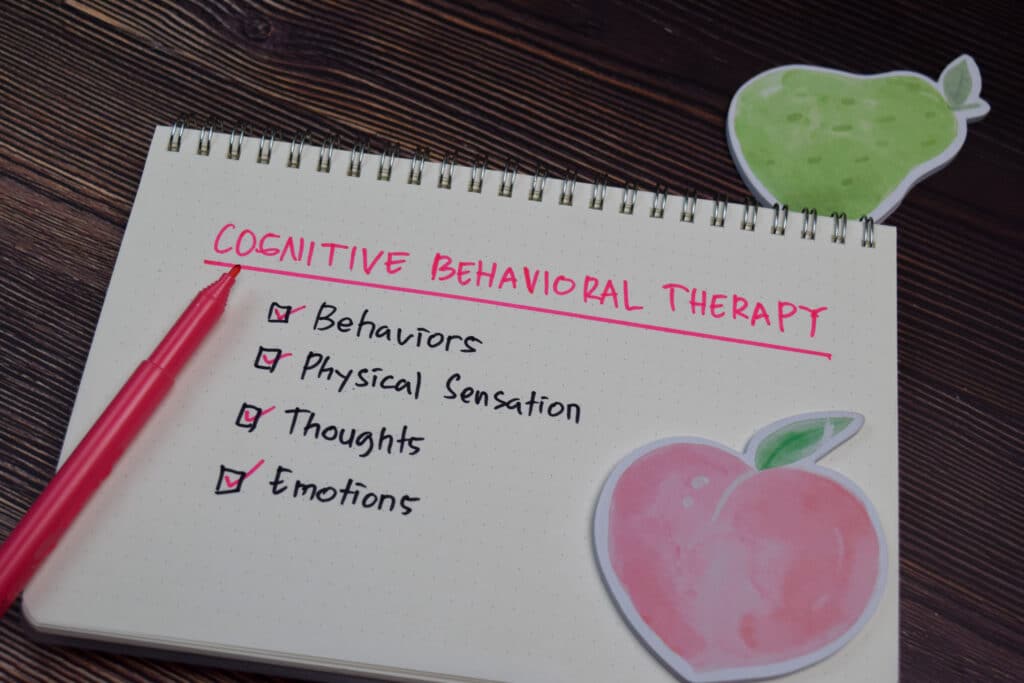If you are struggling with addiction or mental health disorders, you might receive a suggestion for therapy, particularly cognitive behavioral therapy. But what is cognitive behavioral therapy used to treat, and how does it work?
Water Gap Wellness Center is a mental health treatment center in PA. Contact us today to learn more about the benefits of CBT in mental health treatment.
What is CBT Treatment?
Cognitive behavioral therapy (CBT) is a form of talk therapy that can be used to treat several conditions. Numerous studies indicate that CBT provides significant improvement in daily function and that it can be just as effective as other therapies or medications. In fact, when used in conjunction with medication for things like mental health disorders, it can increase the effectiveness of the medication.
What is Cognitive Behavioral Therapy Used to Treat?
CBT treatment can be used to treat:
- Bipolar disorder
- Sleep problems
- Psychosis
- Schizophrenia
- Substance abuse
- Panic disorder
- PTSD
- Phobias
- OCD
- Eating disorders
- Bipolar disorder
- Borderline personality disorder
- Depression
How Does CBT Treatment Work?
Cognitive behavioral therapy focuses on core principles:
- CBT believes that many psychological problems are based on unhelpful or harmful ways of thinking.
- CBT is based on the idea that these problems can also be based on unhelpful behavior patterns.
- CBT treatment can alleviate suffering from certain psychological problems by providing people with coping mechanisms that do away with these unhelpful thought patterns and harmful behaviors.
If you start cognitive behavioral therapy at our treatment center, you’ll have an opportunity to meet with a trained therapist who will help you recognize any harmful or distorted thought patterns you might have. These can include things like:
- Always thinking the worst will happen
- Believing you can read minds and you know everyone is mad or disappointed in you
- Thinking you are worthless
By recognizing what automatic thoughts you have, you can learn to be cognizant of when they strike in everyday situations and use problem-solving skills to stop them in their tracks.
For example, if you believe you can read other people’s minds, you might assume that when someone wants to talk to you, it’s always to lecture or punish you. After a few therapy sessions, you might be aware of this.
So, the next time someone asks to speak with you, you might be immediately overwhelmed with dread or panic, but you’ll be able to take a moment to recognize that that stems from the fact that you think you know what they want to talk to you about and that it’s going to be a punishment. And then, you’ll be able to practice changing that belief pattern with something like meditation or reminding yourself that you’re not a mind reader.
That can help you take a few deep breaths, avoid the panic you might have started with, and meet that person with no expectations of what will transpire.
To learn more about how CBT can be used to improve your mental health, contact our Pennsylvania mental health facility today.
What to Expect with CBT Treatment
If you participate in cognitive behavioral therapy, you might receive treatment for co-occurring disorders like substance abuse and depression or anxiety and depression concurrently.
CBT treatment is divided into three key sections, and after each week, you’ll have homework assignments. These homework assignments play a critical role. They will help you use thought exercises, identify thought patterns, develop coping skills, and practice them in real-time.
The therapist or professionals with whom you work will prepare you for what to expect during your first session, explaining how things will work, what the different sections will be, and what to expect in terms of goals and homework.
At our facility, clients get to work in a collaborative fashion with their psychologist. This can prove fruitful for many people compared to sitting on a couch and discussing your feelings. Most sessions last between thirty and sixty minutes, and you’ll usually participate in up to twenty sessions.
When you work with your therapist during separate sessions, you can focus on thoughts, physical feelings, or behaviors. You’ll work with a therapist to analyze the unrealistic or unhelpful areas and then change them. You’ll get to practice things throughout the rest of your day and week and then report back in follow-up sessions.
In many cases, you’ll participate not just in individual sessions but in group therapy sessions. These group therapy sessions provide a chance for everyone to share and collaborate, providing insight into what tactics have worked and where they have learned from failure.
If you are ready for help, reach out to our team to start your evaluation at (877) 414-3281.




